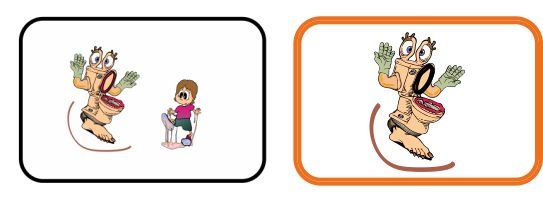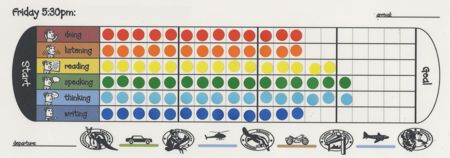
Belief in heaven and hell is a big deal in Judaism, Christianity, and Islam, and some forms of doctrinaire Buddhism. For the rest of us it's simply meaningless. We don't live in order to die, we live in order to live.
Ursla Le Guin (1929-2018)
interview in Vice Magazine
Why Democracy in the classroom?
Freedom of choice. Freedom To shop!
Freedom of thought. Freedom to stop.
Albert Einstein is reported to have remarked that no problem can be solved from the same level of consciousness that created it. Discounting angels and devils this suggests that all problems spring from the human mind. Nothing is a problem until we notice it. Take climate change, for example. Human beings have been pummelled by nature for longer than we can collectively remember. From the humble cave to massive structures like the Tokyo Underground Temple we have always taken steps to mitigate its effects. The question of whether the weather has been altered by human activity is irrelevent to the need to take action to protect ourselves. It only becomes important if we have a problem to solve. If we decide that perpitrators should pay reparations then detailed analysis becomes important. If we wish to curtail activity that contributes to climate instability then we do indeed need to know what is what. And it follows that if we want to make a change then we first need to know what change we want to make. Unless, of course, we feel the situation is so dire we need to jump in the dark...
Like water polishing stone we are shaped by our experiences. I had a horrible time learning languages at school so when I first began teaching English to children I wanted to do anything but use a text book. Having a liking for games it was a natural choice for me to build my lessons around them and with them. The problems I eventually noticed were not so much with the idea of exclusively using games, but with the structures inherent in the games I was using. When I started out I had no notion that co-operative and non-competitive games existed. Games were inherently competitive, or so I thought. I had always found games fun, though I hated losing. And since I equated enjoyment with learning I began creating games focusing on and using English. It was only gradually I noticed the inherent nastiness in competition and the disruption it brings to group learning. Here's some imagery:
A classroom is like a goldfish bowl. The students are the fish. They eat. They poop. Competition is not changing the water.
After reading Alfie Kohn's book No Contest and delving into The Second Co-operative Sports and Games Book by Terry Orlick I realised I could get better English learning outcomes in my bowl by reducing competition. It took me time to learn how to make non-competitive and co-operative games. Even now I think competitive games are more straightforward because they have built in challanges - the other players. And when those players are people who enjoy pitting their wits against each other the loss of social cohesion is usually little or none. But inside the classroom it is a different story. Rapport is easily damaged and without rapport learning a language grinds to a halt.
I've been in many classrooms and when the atmosphere is polluted by personal animosities and rivalries the quantity and quality of learning both suffer. I think for the teacher group building must come before teaching. One reason I am attracted towards democracy in the classroom is that it forces us to deal with group dynamics head on. Winston Churchill said that democracy is the worst form of government apart from all the others that have been tried. Indeed, instilling democracy is often the excuse raised for toppling governments trying those other forms. Given that it is generally held in such high esteem I wonder why so little of it exists in the world of education. Democratic schools do exist but they are far from the norm. And even then, how much democracy actually gets into the classroom is a guess.
There's an old Taoist story that I like to bring in where I can. A master thief wishes to pass on his knowledge about the family business to his son. They break into a house and when the son opens a large chest to check the contents the father pushes his son inside, locks it and goes home. The son escapes the chest by making noises to attract the occupants of the house. When they open the chest he knocks out the light and flees through the window. But the occupants give chase and won't give up. Tiring, the son passes a well. He throws in a stone and hides. His pursuers hear the splash. They gather. They wait. Finally, believing their target drowned, they leave. The son staggers home to find his father waiting. The father says, "My son, now I have taught you everything I know."
I'm attracted to this story for two reasons. Firstly, it points to experience as the true source of mastery. I've read that to acquire deep ability in something valuable requires 10,000 hours of diligent practise. And how much time do we give over to practising and becoming experts in democracy? True democracy is not about electing representatives once every four or five years. That's all sham and flimflam. True democracy is about the group taking charge of and controlling their destiny on a day-to-day basis.
Letting children choose where they sit in class or what colour pen to write with is not democracy. Giving them control over the content and structure of the class is. When children and teacher share the same language this can be negotiated, if the will and belief is there. When the target of the class is learning language itself then children need to practise making decisions with and in the target language. And when a common language is lacking some interface to facilitate understanding and making choices is required. This is where Choice Cards come in.

I've been using Choice cards in my classes for over five years. My classes consist of presenting a selection of cards to children. Each card depicts an activity. The lesson becomes an execution of the activities chosen by the children. When I first began my cards had a simple black boarder. Now they are colour coded to give feedback about the type of activity. Red for physical action, orange for listening, yellow for reading, green for speaking, light blue for thinking, blue for writing and purple for mystery (the activity can have different kinds of focus). Of course, most activities involve more than one skill - the coding represents the dominant skill being practised. A record of the activities chosen and completed is kept in the form of a sticker board. When my wife and I first introduced this into our school we decided to present it as a travel chart. Each chart is divided into sections, We created the notion of travelling to cities around the world and gave stickers to a group every time they got to a city. To get to a city the group needs to complete a section. The section line also served as a way to point out a need for balance. Once a colour passes a section line it can no longer accumulate more stickers until the section is complete. The children can still choose to do that kind of activity but in doing so slow their progress on completing the whole board. My initial focus for creating sections was to prevent competition developing between children racing different favourite colours. I wanted to reduce emphasis on seeing the end of the chart as a goal and create more focus on achieving balance between the skills.

Overall. I'm pleased with the lesson structure created by the cards. Different groups develop their favourite activities and the sticker board, although smacking of a reward system with the use of stickers, does provide additional conversational opportunities. Over time it does encourage groups to think about what they are doing and how to balance their choices. In itself using Choice cards does not solve problems with group dynamics but it does highlight them. For example, if one child is trying to dominate the group and force choices on other children that requires some kind of action. There are different ways that children can choose the cards. Here are four I've used with small classes:
My Choice: Place a selection of cards on the table. Each child in turn chooses a card. After all the children have chosen the teacher also chooses a card. Decide who chooses first randomly. Do the cards chosen randomly.
My Secret Choice: Each child chooses two cards at random from the deck. Decides who chooses first randomly. The teacher chooses two cards last. Everyone now examines their cards in secret keeps one and returns the other to the deck. The chosen cards are collected and done in random order. This method frees an individual from peer pressure.
Not This One: Place a selection of cards on the table. Decide who goes first randomly. Go around the table taking turns removing cards until there is only one left. That activity is done. Repeat the process each time with the remaining cards. The teacher takes a turn according to seating order. This method gives a lot of power to whoever chooses last and can be used to generate discussion.
Order The Cards: The teacher places a number of cards on the table and the children decide the running order. Cards not done can be done in the next class. This method is useful when the class only has a few cards to go to complete a section on the sticker board. The teacher puts out cards matching the number and colours required to complete the section.
The overall aim with the method of using the cards is to practise reaching consensus. This is preferable to voting which can become competitive and then divisive. Moving beyond using the cards and having enough target language for a group to be able to make a lesson is perhaps the ultimate goal. I haven't reached it yet.
One problem with the cards is when the children choose an empty activity. This is something where the potential language gain is none. The best method to deal with this is to find a way to change the activity to put additional language in. This is not always possible. Another method is to retire the activity and wait for it to be asked. The value of the activity then becomes the language used to obtain it.
I'd like to see the use of Choice Cards spread beyond a single school. So I'm looking for teachers interested in trying out the method. I have cards available. Please contact me if you are interested. Of course, using the cards only deals with lesson structure. Content is a another story for another time.
I said there were two reasons why I liked the story. The second is trust. In order to lock his son in the chest the father needed to trust in the ability of his son. George Bernard Shaw wrote, "Democracy substitutes election by the incompetent many for appointment by the corrupt few." But are the many really incompetent and if they are, do they really need to remain so? And can't we move beyond the current notions of Liberal Democracy which has proved so murderous? I'll end with another of my favourite Taoist stories. The blind master walking agilely down a dark road at night crashes into a stranger. "You fool! cries the master. Can't you see this lantern I'm carrying? "Friend", replies the stranger. "Check your lantern - it's gone out."
November 2013
- Top Page
- Splog!
- Articles
- Games
- Across The Table
- Add One More
- Anaconda
- Be A Monster!
- Black Hole (board game)
- Bombs Away!
- Catch!
- Catch-Caught-Caught!
- Centipede
- Charades
- Co-operative Quiz
- Crocodile
- Dice Stack
- Fast Food Tag
- Find My Number
- Find The Penny
- Football
- The Happy Game
- Line Up!
- Maze Challenge
- Natty Narration
- Nose Nose Nose
- One Step Forward!
- Pair Fluency Match 7 - Death Wish
- Pair Fluency Match 7 - Go Green!
- Parrot Parade
- Passport Control
- Reach The Top!
- Snake
- SockIt!
- Tickle Time
- What Cards
- Which One?
- Whose Shoe?
- World Cup Football 2018
- You, You, Me!
- Wake Up
- Packs
- Sheets
- Songs and Music
- Strips (songs and otherwise)
- Stories
- Techniques
- Video
- Environment
- Japan
- The 75th Anniversay of the bombing of Hiroshima
- The 75th Anniversay of the bombing of Nagasaki
- Cars in Japan
- Coronavirus Olympics
- Forest Bathing
- Japan and the Summit
- Japan and World War Two
- Multiculural Japan?
- Olympics Two Tokyos
- Plastic in Japan
- Return to Fukushima
- The Anniversary too Important to Cancel
- Typhoon Jebi
- Yayoi Kusama's Infinity
- Other
- This Week In History
- January, February, March
- April, May, June
- Sub Menu Item
- This Week in History: April 8-10
- This Week in History: April 12-15
- This Week in History: April 19-24
- This Week in History: April 24-26
- This Week in History: May 6-11
- This Week in History: May 11-14
- This Week in History: May 18-23
- This Week in History: May 25-31
- This Week in History: June 1-5
- This Week in History: June 11-14
- This Week in History: June 22-27
- This Week in History: June 15-21
- This Week in History: June 29 - July 5
- July, August, September
- This Week in History: July 6-12
- Sub Menu Item
- This Week in History: July 14-19
- This Week in History: July 27-31
- This Week in History: August 2- 6
- This Week in History: August 17-21
- This Week in History: August 27-30
- This Week in History: August 31 - September 6th
- This Week in History: September 7-13
- This Week in History: September 22-27
- This Week in History: September 14-20
- This Week in History: September 28 - October 4
- October, November, December
- Quizes
- Vocab



